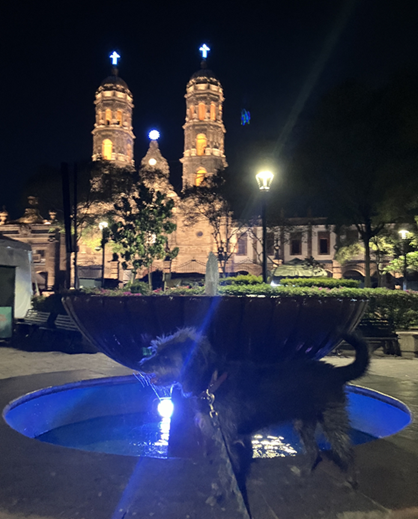Article last updated September 16, 2025.
Entering the U.S. with your dog – or adopting a homeless dog from abroad — is about to get a lot more complicated.
New rules announced by the CDC this week are part of a stepped-up effort to keep the U.S. dog population rabies-free.
Since 2015, there have been at least four cases of dogs with rabies entering the U.S. from abroad. Additionally, there have been numerous cases where dogs are imported with falsified documents or are transported in unsafe conditions.
The CDC’s rules overhaul is part of a wider effort to normalize policies following the pandemic, when dog importations were suspended from upwards of 100+ countries where rabies in dogs is a chronic problem.
The new rules described below go into effect on August 1, 2024.
What’s Changing for Dogs Entering the U.S.:
- All dogs must now be at least six months old.
- All dogs must be microchipped.
- All dogs must be visibly healthy.
- Owners must verify that the dog has received a valid rabies vaccine, and has not been in a high-risk country during the previous six months.
Dogs entering the U.S. from high-risk countries for rabies must meet additional criteria. This includes:
- Completing a blood test while abroad to ensure the animal has immunity from rabies
- Getting a physical exam upon arrival
- Then, receiving another rabies vaccine in the U.S.
Lacking a blood test showing immunity from rabies, dogs arriving from a high-risk country will be quarantined for 28 days.
This is the list of countries the CDC deems high risk for rabies in 2024. Mexico is not currently on it.
As noted above, the new rules take effect on August 1, 2024. Additional details can be found on this page of the CDC website.
The agency has also prepared guidance for pet parents or guardians traveling internationally with dogs on this page.

What You Need to Do to Comply with the New Rules
If traveling by ground, your dog will be examined by U.S. Customs and Border Control upon arrival. This is where you will be expected to provide:
A copy of your dog’s current rabies vaccination certificate from a licensed veterinarian. This document should include:
- Your name and address
- Your dog’s breed, sex, age, color, and other identifying information
- The date of rabies vaccination and vaccine product information.
According to the CDC’s website, the rabies vaccine should be administered at least 28 days prior to arrival if it’s the animal’s first vaccination.
Finally, all documents presented to U.S. Customs must be in English or include a certified translation. According to the CDC website…
“A certified translation is a signed statement on professional letterhead issued by a licensed translator declaring that the translation is an accurate and true representation of the original document. The translation must include the name, address, and contact information of the translator and have a signatory stamp or elevated seal with the translator’s license number included.”
Given how onerous this sounds, I strongly recommend that you have the administering vet create the original document in English, if possible.
Traveling to the U.S. with Dogs by Air
For travelers arriving in the U.S. with dogs by air, you should know that the airlines are on their own (as is typically the case) to decide how to enforce the new federal rules.
As such, pet policies are likely to be in flux over the next few months, so if you plan to travel by air with your dog anytime soon, I suggest checking and re-checking your airline’s procedures to ensure that you meet them.
Below are links to the major airlines’ pet policy pages.
Delta: https://www.delta.com/us/en/pet-travel/overview
Aeromexico: https://aeromexico.com/en-us/travel-information/flying-with-pets
Air Canada: https://www.aircanada.com/ca/en/aco/home/plan/special-assistance/pets.html
American Airlines: https://www.aa.com/i18n/travel-info/special-assistance/pets.jsp
United Airlines: https://www.united.com/en/us/fly/travel/traveling-with-pets.html
Alaska Airlines: https://www.alaskaair.com/content/travel-info/pets
Jet Blue: https://www.jetblue.com/traveling-together/traveling-with-pets
Viva Aerobus: https://www.vivaaerobus.com/en-us/info/get-ready-to-fly/travel-with-pets
While Southwest does fly a few Mexican routes, they do not allow pets on these flights or any international trips.
Who Will Be Most Affected
There’s no question that the new rules will help safeguard the U.S. population (both people and animals) from rabies risk.
Yet the requirements are certain to hurt several animal-loving groups, including those facilitating international dog rescue and adoptions, expats who spend part of the year abroad and travel back and forth with their dogs, and military families returning from abroad with their pets.
I worry the most about the increased cost these new rules will impose on global adoptions, which provide a lifeline for so many homeless dogs, most notably those from Mexico.
If you are a dog-loving expat, I urge you to volunteer or donate to your local animal welfare groups to help them prepare for these changes — as these are dogs in desperate need.

